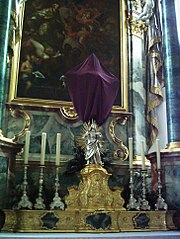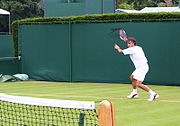
UPDATE: I think some of my confusion stems from a difference iMonk already pointed out: "An important balance has to be pursued if post-evangelicalism is to be pursued in the Protestant context." I guess it was just easier for me to drop the Protestant context (pretext maybe?). :)
This post about Lent from internetmonk.com is too good not to share.
But read over this section:
So my own vision of evangelicalism is a mixture of Christian traditions and uncompromising, Gospel-centered, new covenant Gospel preaching, teaching and application.
Evangelicalism needs the connections and depth that come from the broader, deeper, more ancient Christian tradition; but even more, evangelicalism needs a strong new covenant Gospel emphasis in everything. Evangelicalism needs traditions that can give meaning and shape spirituality, but evangelicalism needs to avoid any form of legalism, asceticism or new versions of old covenant rituals.
Am I presupposing bias on his part in that I feel like he's positing "new covenant Gospel traditions" (of Evangelicalism) as a superior alternative to "more ancient Christian tradition" (of orthodox traditions), and saying that these new traditions "give meaning and shape spirituality" while the old traditions are a "form of legalism, ascetism, or new version of old covenant rituals?"
Seriously, I'm asking. Because it's possible that I'm just projecting my own bias into his words. Am I being too reactive and/or defensive of the orthodox traditions. Remember I want to stop doing that.
In any case, even if I'm maybe blowing his satement out of proportion and context, I remember feeling that way when I was Protestant. I thought that attention to rituals like fasting and Lent or sacraments like Baptism and Eucharist in the orthodox traditions were just a throwback to the legalism of the Old Testament/Covenant. Surely, in my opinion, real "New Testament spirituality" didn't need all these complicated institutions and formulas - all you need is your Bible and a few quiet minutes in prayer with God. Right?
Maybe.
In my practice (of more orthodox Christian traditions) in the Catholic faith, I'm finding exactly what iMonk says I should: "a full awareness of the new covenant and all the Gospel-centric implications of the new covenant." He talks about fasting. When I fasted yesterday on Ash Wednesday for the first time; I'll admit it was hard to focus on God and not on myself or my newly adopted, more ritualistic journey.
But C.S. Lewis makes a great metaphor (has he ever made a bad one?) I think I can use.
Someone who is not a good tennis player may now and then make a good shot. What you mean by a good player is a man whose eye and muscles and nerves have been so trained by making innumerable good shots that they can now be relied on. They have a certain tone or quality which is there even when he is not playing, just as a mathematician's mind has a certain habit and outlook which is there even when he is not doing mathematics. ... Now it is that quality rather than the particular actions [that are important.]
...
This distinction is important for the following reason. If we thought only of the particular actions we might encourage [some] wrong ideas. We might think that, provided you did the right thing, it did not matter how or why you did it ... We might think that God wanted simply obedience to a set of rules: whereas He really wants people of a particular sort.
This is one of the reasons we commit long-term to rituals and why they become time-honored traditions. We make them habits, like training, so that, after their newness wears off, we don't think about the traditions alone; the traditions form those certain qualities in us that make us live in God's grace when we are not in ritual.
When I first started my Catholic journey I had a couple of what I would now call "lucky shots" - where I felt a deep and intimate connection to God thru a ritual or ritualistic worship. Now I feel like I'm more in a "training" mode. There are some sporadic dramatic encounters, but I'm still "focusing on my own game" as it were - still memorizing some of the prayers, still following the congregation's lead during Eucharistic liturgy, etc.
I'm trying to make some of the "innumerable good shots" now. This Lenten Season is one of them, and many more to come. In these actions, I must remember to pursue the qualities God desires for me, and not just pursue the actions. But I now know from personal experience that, just as iMonk desires, the orthodox rituals and traditions "bring us deeper into the experience of the savior who is our salvation."








